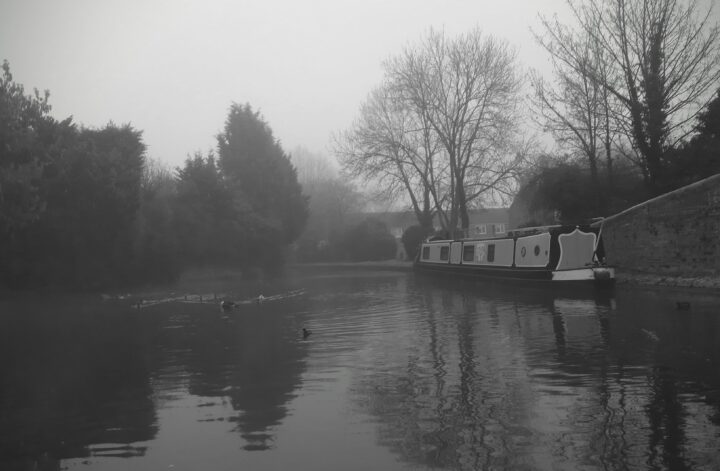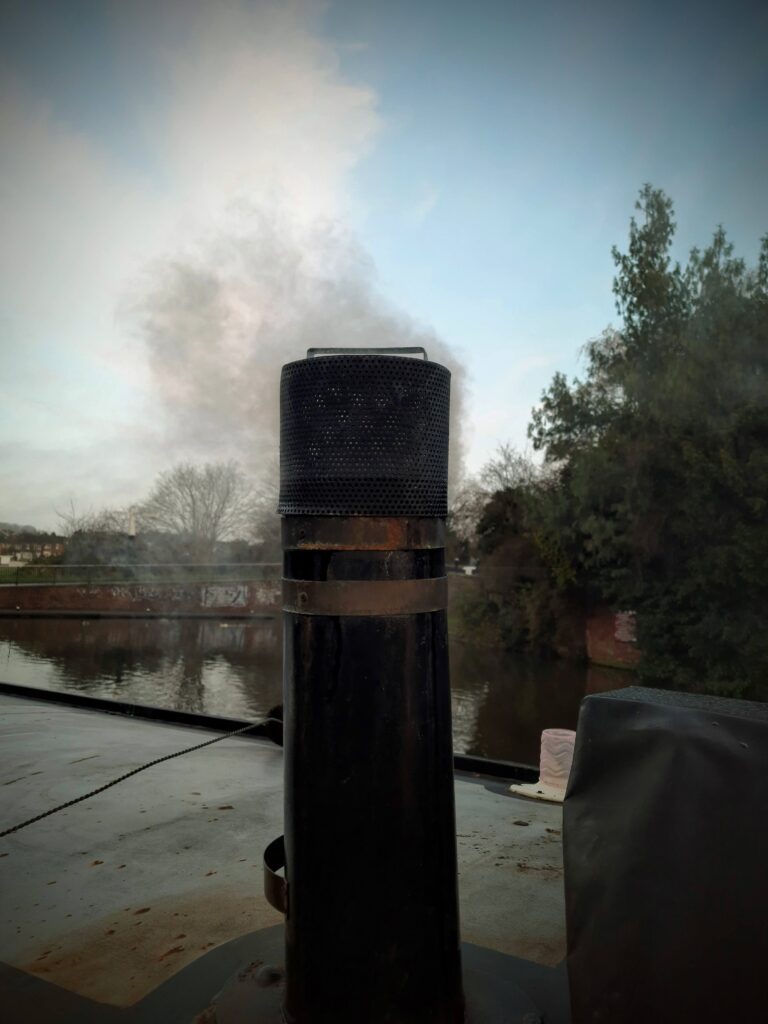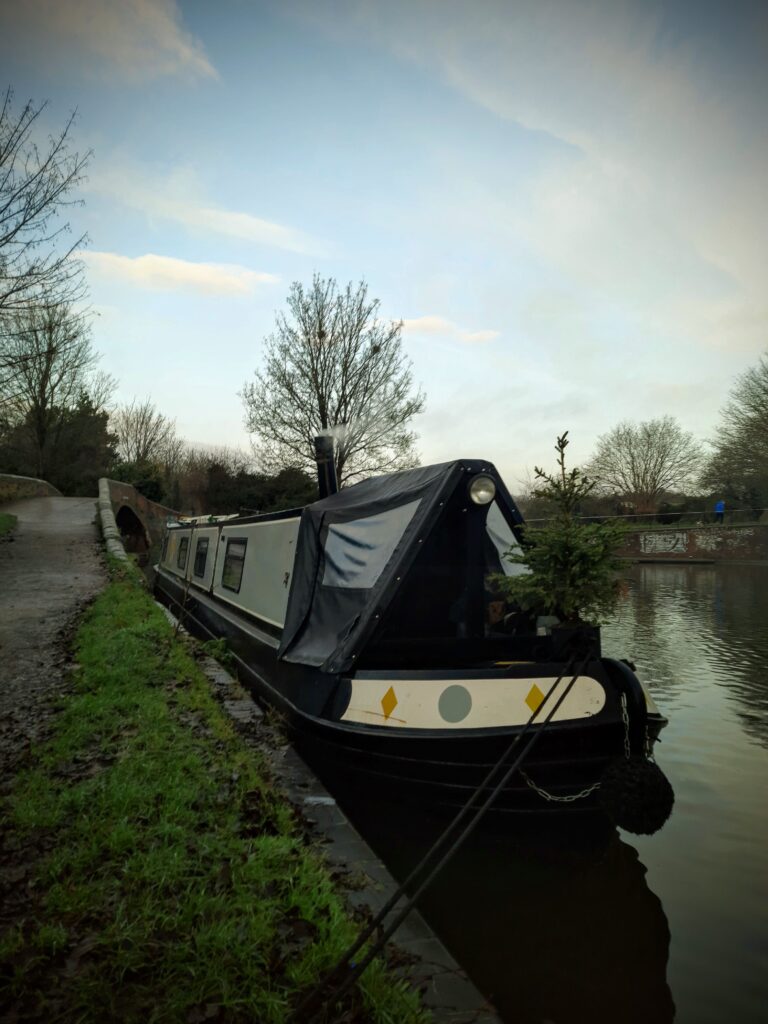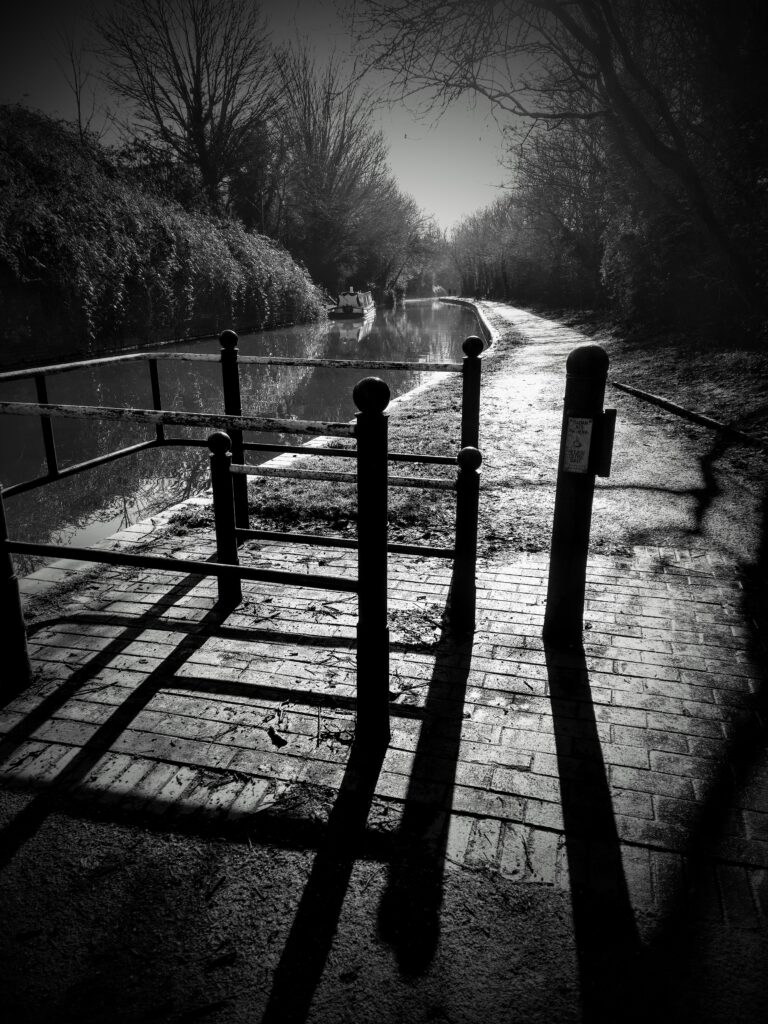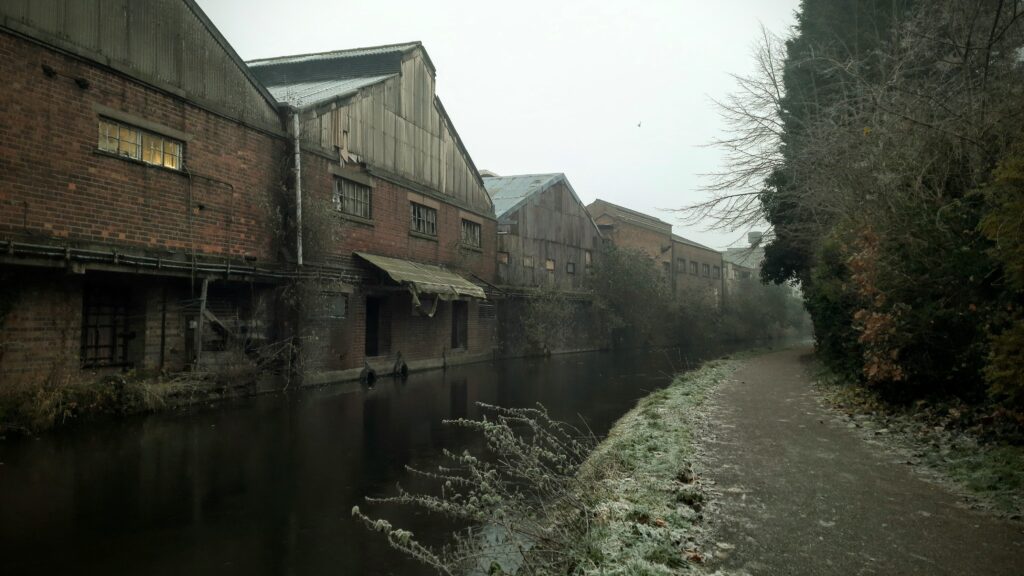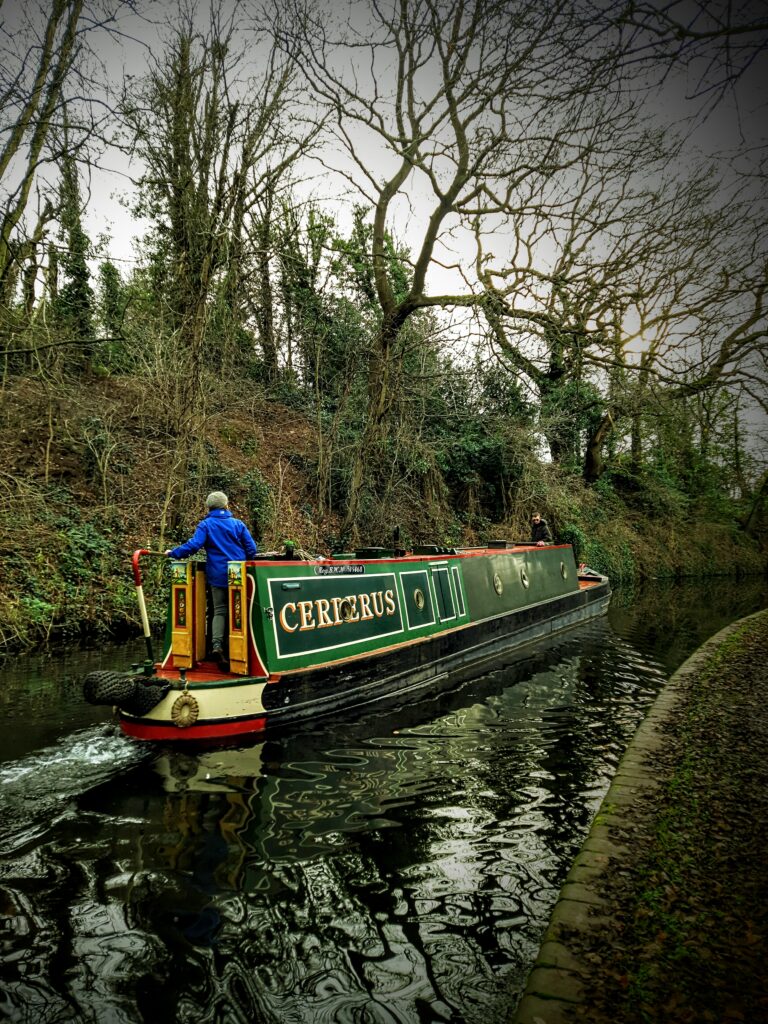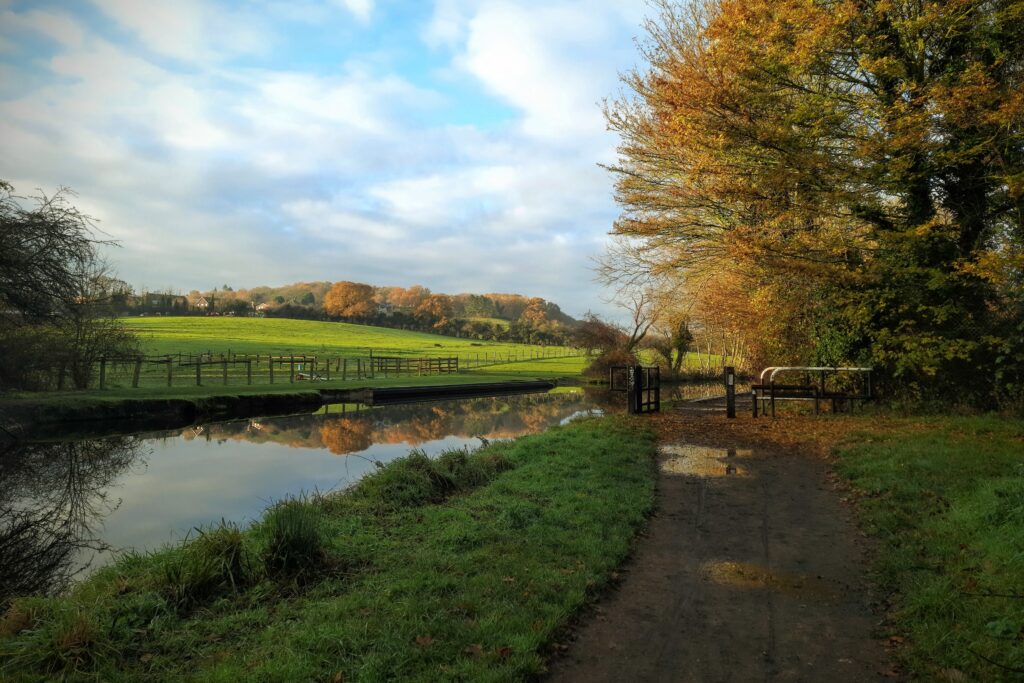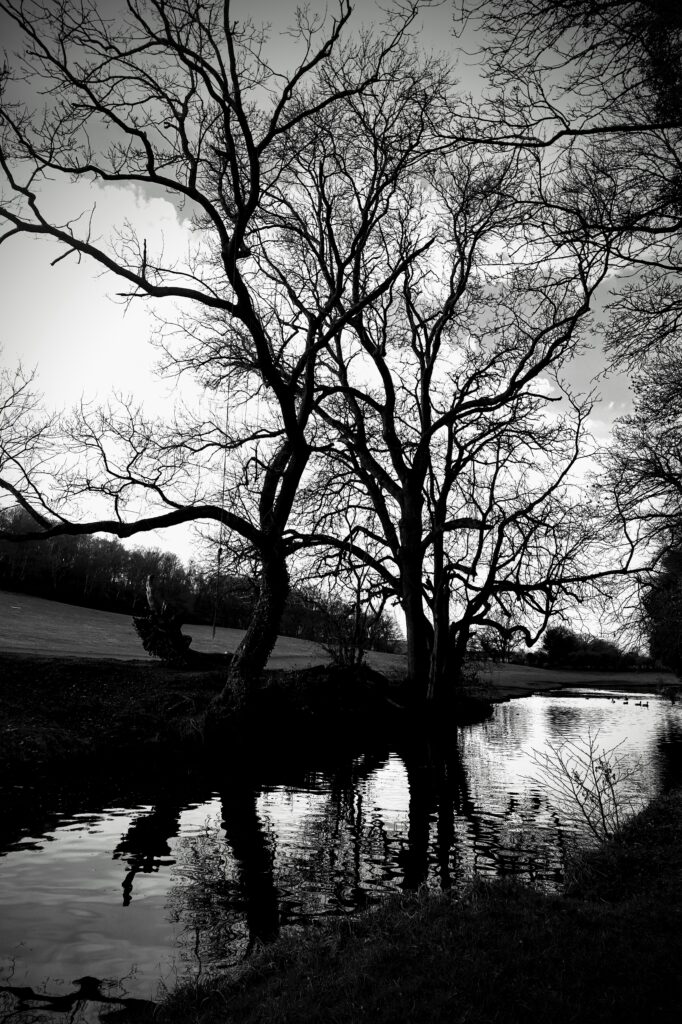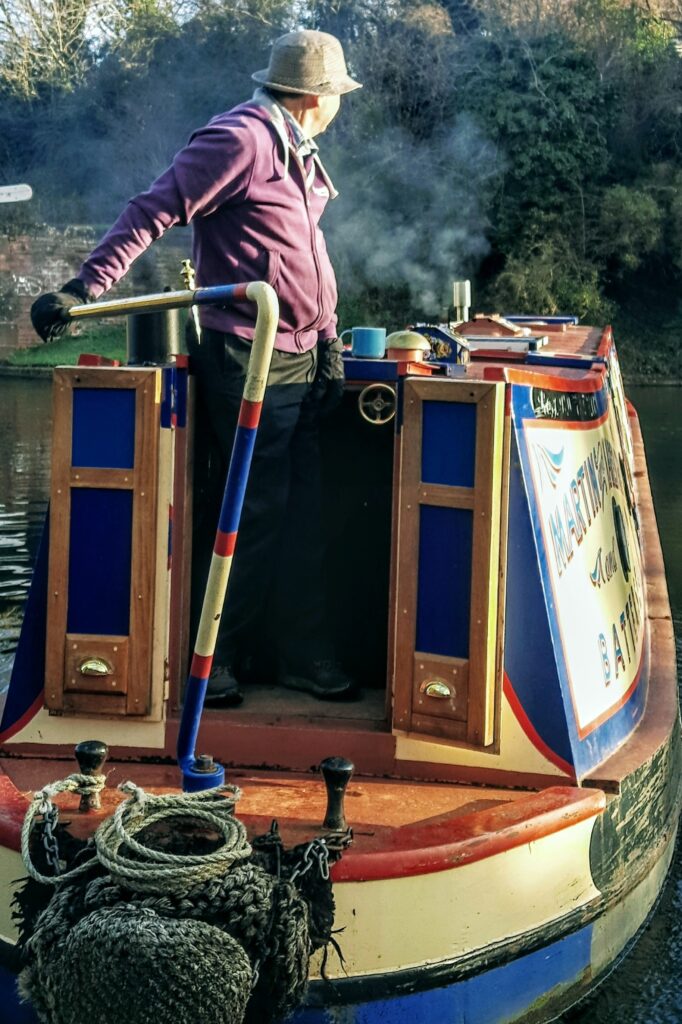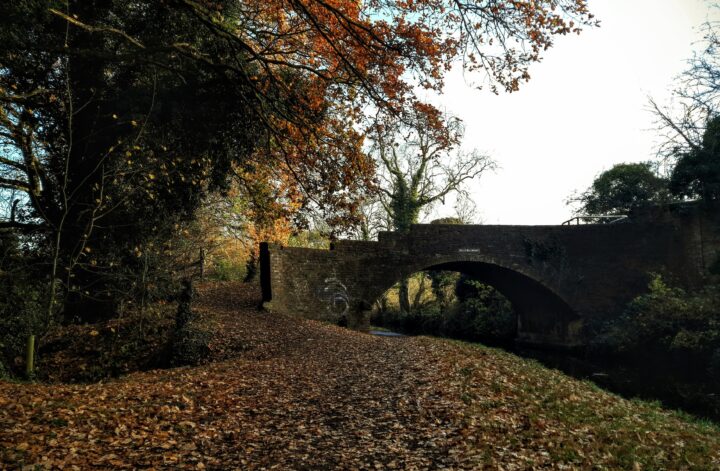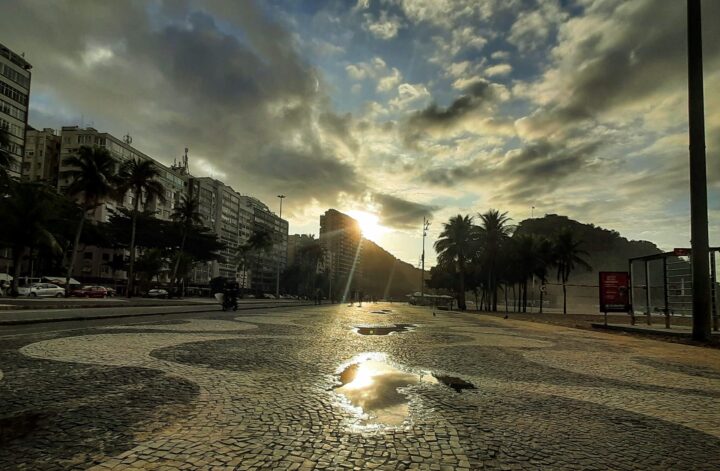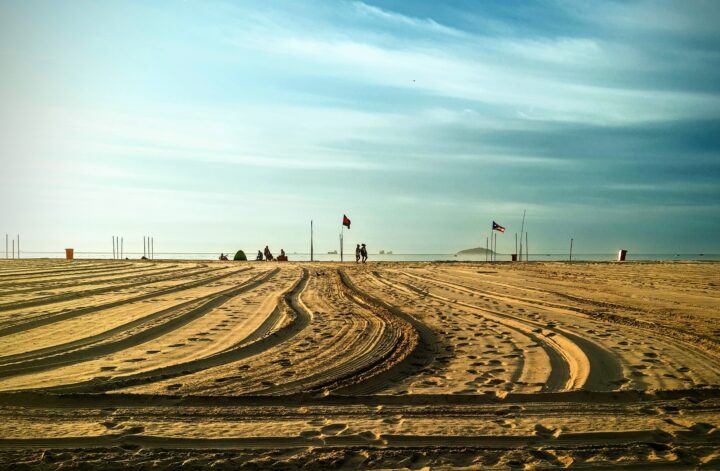Wordsley, Stourbridge, England: -1 degrees, frosty, cold, and overcast.
When I woke up, -3 degrees was screaming at me. I could feel it in my bones. It is very cold, but I’m getting used to it quickly.
Before travelling, this was a frequent discussion with my pupils in Brazil about whether I could adapt to the English cold. I feel that in the last couple of days, which have been cold, it has not bothered me as much as when I first arrived.
Minus temperatures are still a little too much, but above 0°, it is not as problematic as before. I still think that rain is a shit, when it rains it is much worse, the cold without rain is much more bearable.So, as it is -3 degrees and probably my personal limit, I packed my small rucksack with food for the ducks and swans, my journal, and a few pens, pencils, etc. to write.
When I opened the front door to leave, the cold hit me in the face, but I was determined to feed the birds this morning. Everything and everywhere outside is cold and misty. I followed the path I’m now used to taking, going on automatic pilot that leads me to the canal, and I was there within 10 minutes.
I don’t know if they do this with everybody or just me, but as I put my rucksack down to take out their food, they come at warp speed from quite a far distance from the other side of the canal. I feed them for about 5 minutes; it’s just too cold to stay stopped for more than this time. Two long boats or barges were berthed at the far side of the canal.
One of the barges has a small chimney stack on the boat’s top, with smoke slowly whispering out of it into the cold air. People live on the boat, suggesting there must be a little wood or coal burner inside to heat the vessel and its residents. The smoke rises slowly out of the chimney as there is no wind.
The cold and misty ambience produced an interesting, nice image.
In England, there is a growing trend for people to live on longboats as an alternative way of life. These long, narrow boats are relatively small and compact, equipped with heaters to keep them warm during winter. If you are not permanently moored at a marina, you can only stay in one spot along the canal for a maximum of two weeks.
After that, you must move to another location. You might only travel a mile or two along the canal but must continue moving. You have the right to stay at each new stop for another two weeks, and the cycle continues.
The English water authority overseeing and monitoring the canals in England employs spotters who regularly walk along the canals. They observe and record who is present and how long they stay until they leave. I find this very characteristic of English culture, as it would be unthinkable to do something similar in Brazil.
England takes the law stating that you can only stay for two weeks very seriously. However, in Brazil, a two-week period could easily extend to two and a half weeks, three weeks, or even longer, and it wouldn’t be regarded as strictly. This highlights a key difference between England and Brazil: laws are upheld rigorously in England, regardless of their nature, while in Brazil, the enforcement of laws tends to be more lenient, to say the least.
One of my first informal jobs when I was 11 or 12 years old and still at school was to work in a boatyard that specialised in building long boats for the canals. During the school holidays and weekends, I learned the basics of boat building, welding, oxyacetylene steel cutting, painting, and basic woodwork. Besides my father’s reference as an officer in the Navy, I think it was my first real contact with boat building. It was hard, and I’m surprised that I was never seriously hurt or died.
Although it was dangerous, it was a ride.
The canal system in England was developed during the Industrial Revolution to facilitate the transportation of raw materials to factories and the distribution of finished products, whether for local distribution or export via ports. Today, the extensive canal network connecting all of England provides a wonderful way to explore and engage with the English countryside.
Before the invention of the combustion engine, horses towed narrowboats, longboats, or barges. Nowadays, these boats are commonly equipped with small diesel engines or, in some cases, electric motors.
During the summer months, you can rent a narrowboat or longboat for a week to explore the English canal system and experience the beauty of England. These longboats can accommodate two to three couples, or up to six people, and have a bathroom, kitchen, hot and cold water, and various amenities. You typically do not need a license to operate the boat, and navigating it is relatively safe, as the boats travel at speeds of only 3 to 4 kilometres per hour.
While accidents can happen, they are much less common than those involving seaworthy vessels.
The canal network connects many inland towns in England, allowing you to navigate the countryside and experience the stunning British landscape. As you travel along the canals, you’ll eventually arrive at a town or its outskirts, where you can moor your boat and explore the area.
This is an excellent opportunity to enjoy local cuisine or drinks and have a good time. Many pubs are located alongside the canals, featuring beer gardens and a variety of food options. After a day navigating the winding waterways of England, you can end your evening by stopping near a pub and the local town, making it a perfect way to relax and unwind.
After feeding my feathered friends, I made a round-trip walk alongside the canal, about 6 kilometres back to Wordsley and the more sophisticated coffee shop I have adopted as my second place in England for writing. I got there at about 9:30, and it was already full. I ordered, paid, and the waitress brought me a pot of tea.
As she was finishing serving me, she said that I had become quite a regular there. This surprised me, but it also showed me how English people can be so nice. Brazilians are friendly, too, but it is a different kind of nicety. I poured my tea and began to write an entry in my journal. I checked up on my emails, posted a new photo on Instagram, and then decided to leave.
I walked through the shopping precinct in front of a green where the coffee cafe is located. It is a kind of open-air mini shopping centre or gallery with some shops and a car park. There are the normal shops that you would expect: hairdressers, a small supermarket, a pet shop, and my favourite, the cafe, which in Brazil we call a coffee shop, and two or three charity thrift shops.
These thrift shops that sell quality second-hand clothes are usually associated with some kind of charitable organisation, and in theory, all the proceeds or profit from the store go to that charity or aid. I entered one last week and was impressed by the quality and condition of the clothes. Today, I went to another store and bought a light yellowish khaki blazer that I thought was very beautiful.
I love classic, underrated, and beautiful clothes for men. I was taken aback by the simplicity and beauty of the jacket’s perfect condition, and when I looked at the price, I was taken aback even more, because it was only £ 5—almost for free.
It fitted me like a glove. I couldn’t risk losing this present, so I quickly handed it to the shop assistant and paid. With such a beautiful jacket and in such good condition, I will be able to mix and match this jacket with jeans, flip-flops, etc., in England or Brazil to go out with friends or even a lady.
So, the rest of the day was not necessary anymore!
Nothing could spoil my day; the world could be finishing, etc., but I wouldn’t have cared. After buying my beautiful blazer, nothing else really mattered for the rest of the day.
I had to go out again in the early afternoon to pick up some sandwiches my mother had ordered for a simple lunch, while we would have a big dinner later. When I went out into the street, the cold was cutting my ears, face, and fingers.
Later that night, we had dinner, and I also drank a San Miguel beer that reminded me of my time in London.
In bed by 11:00 p.m.
Thank you.
Thanks for reading this blog post. Please explore my other posts and share your thoughts in the comments section.
Richard

